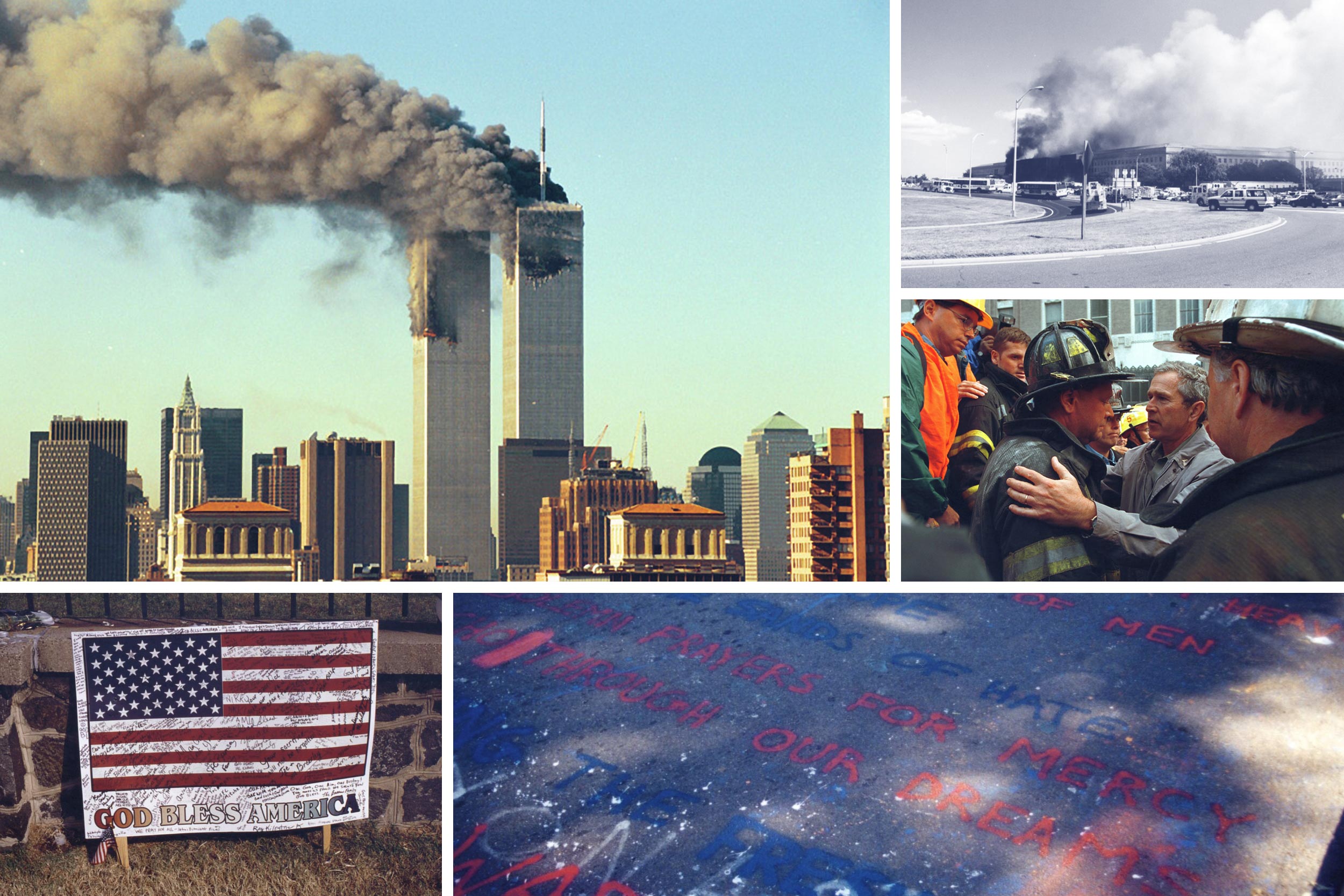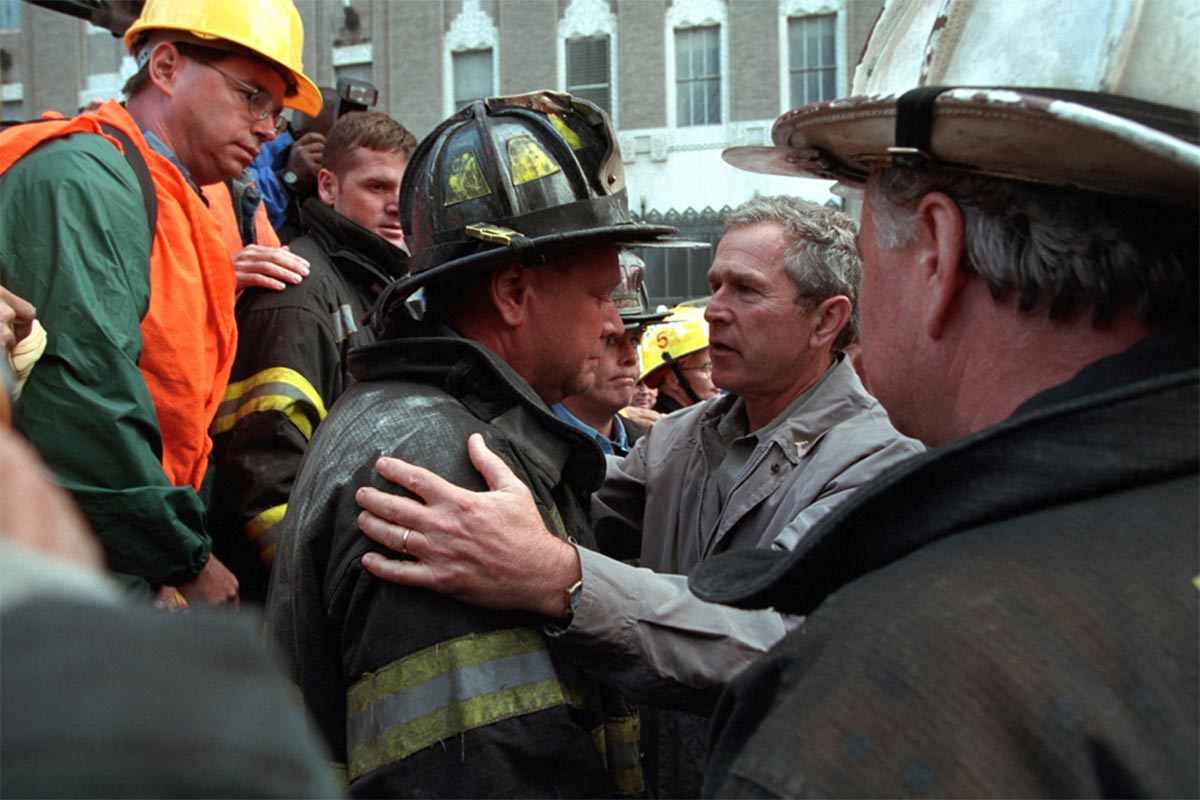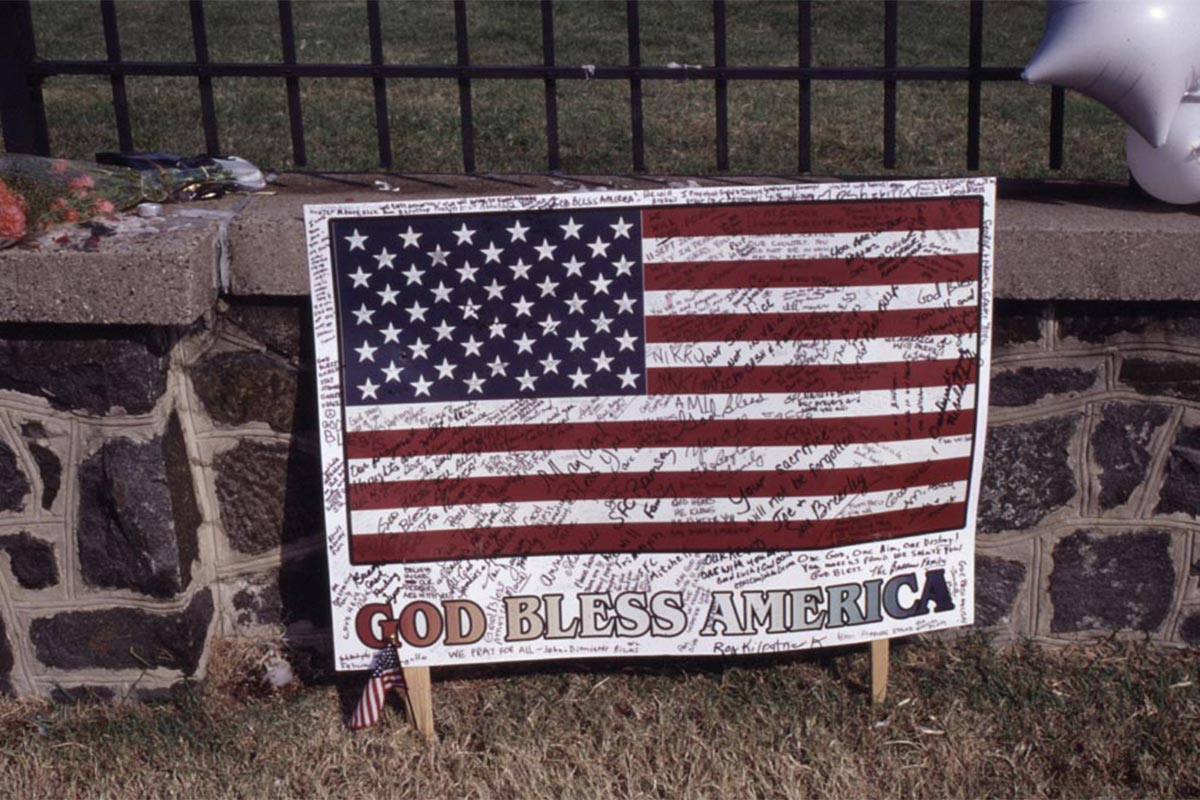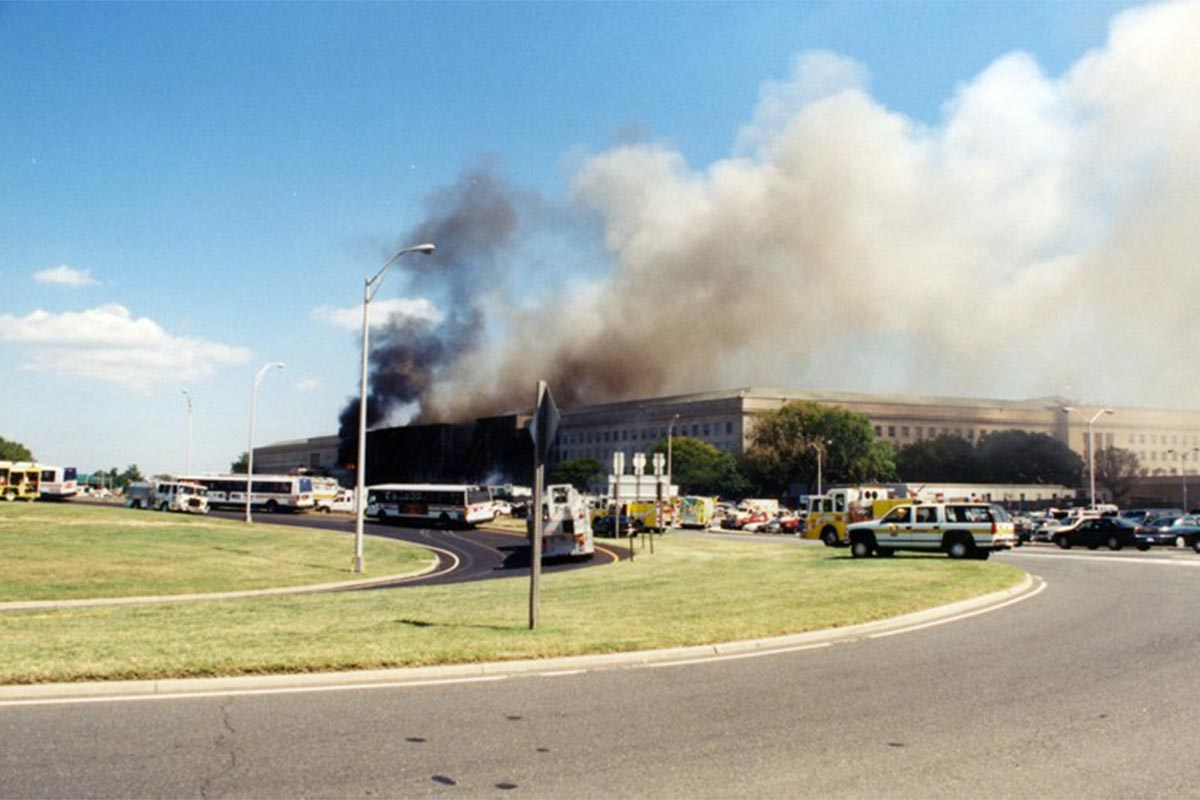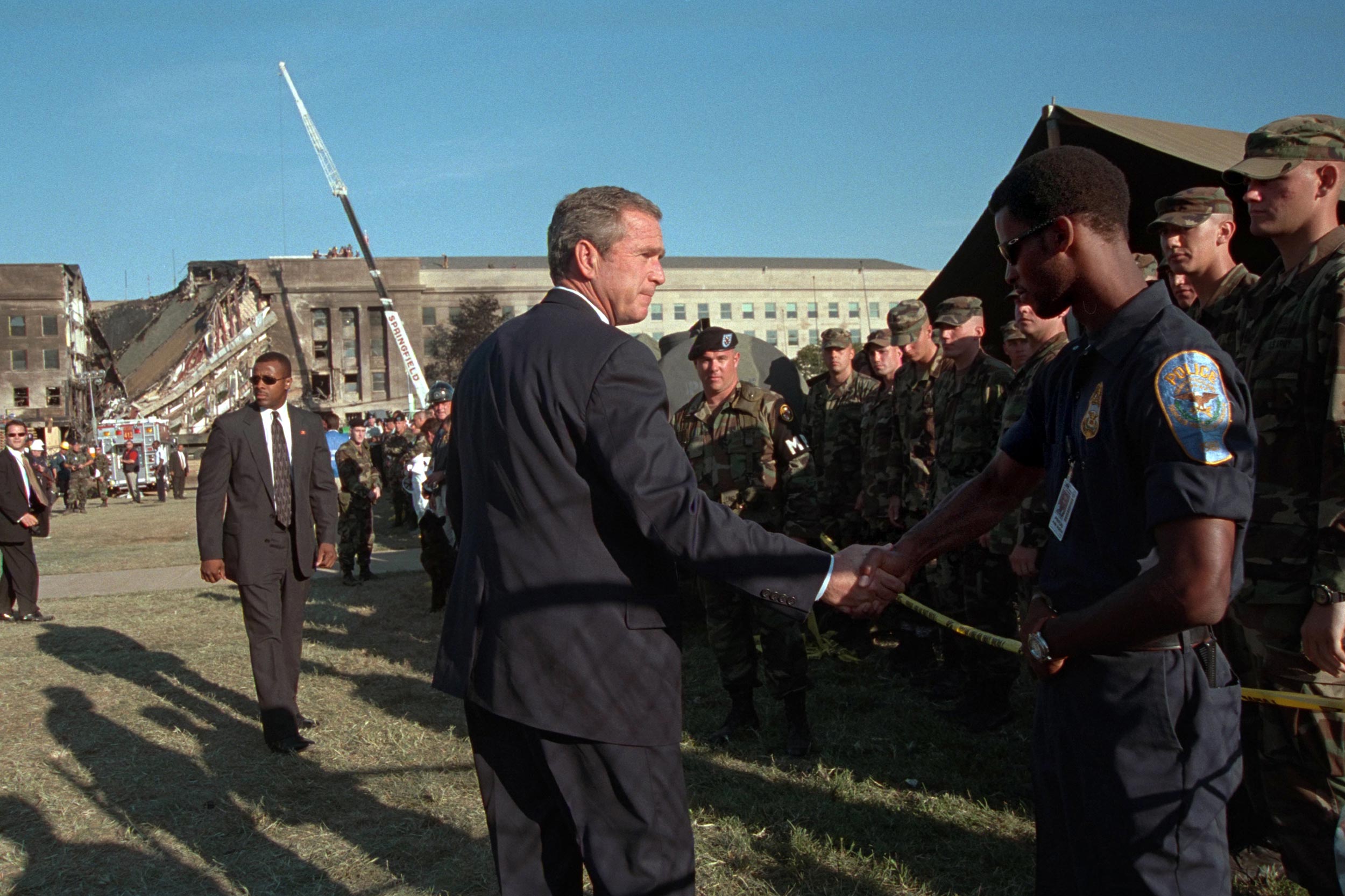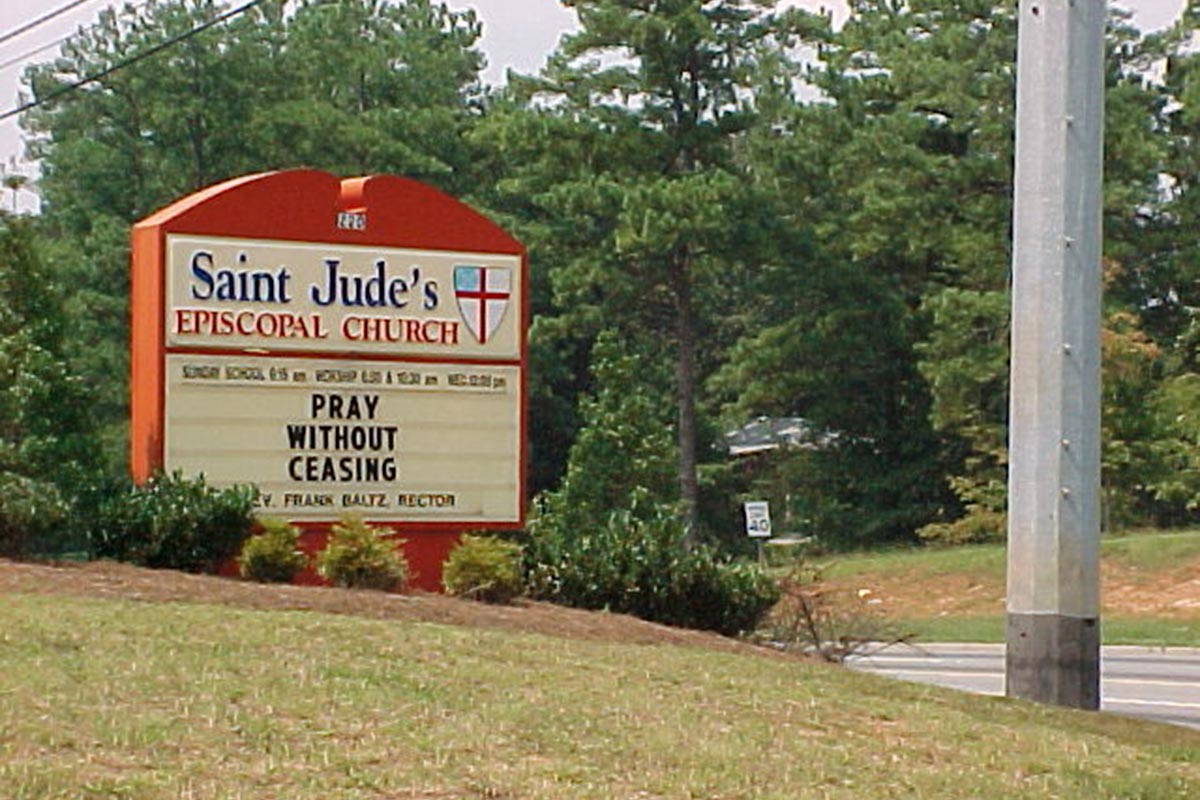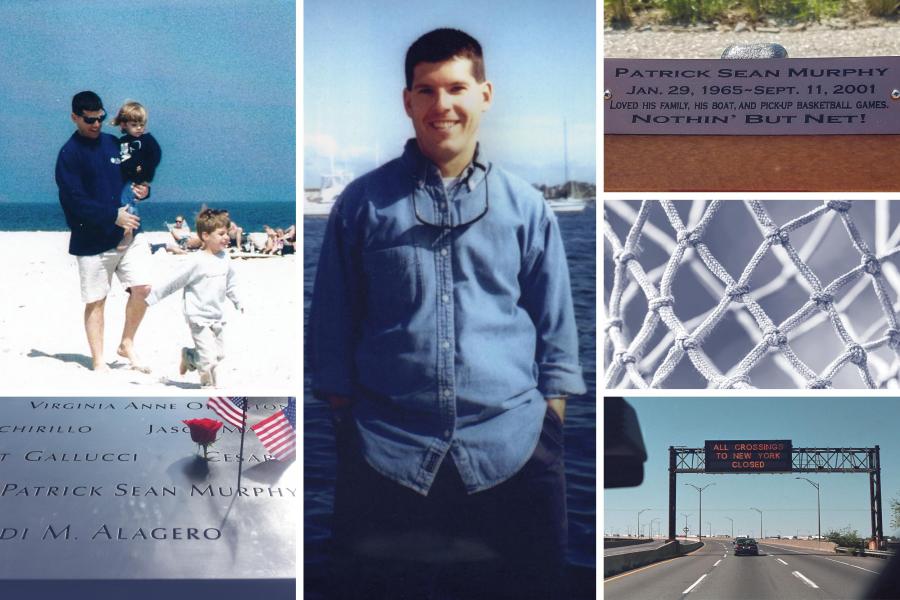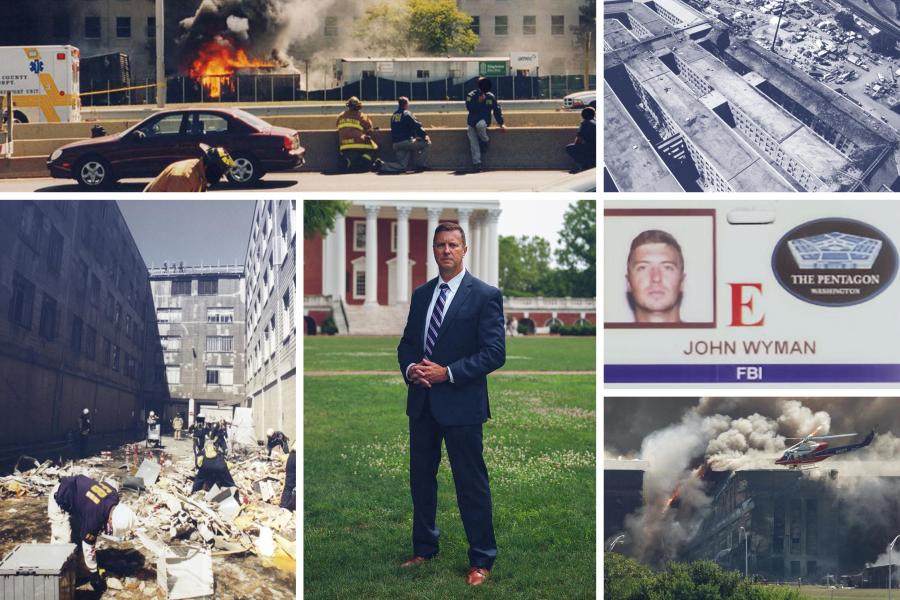American Political Culture and Campaigns
The 9/11 attacks generated a unique political unity that seems almost impossible today, said Larry Sabato, director of UVA’s Center for Politics.
“Less than a year before, George W. Bush had been elected despite losing the popular vote, a controversial election that became even more controversial with the recount [and Supreme Court decision],” Sabato said. “There were still a lot of hard feelings, but 9/11 in many ways reunited the American people.” Bush went from losing the popular vote to having a 91% approval rating, “almost unheard-of.”
However, Sabato said, that image of unity in some ways masked discord we are still grappling with today.
“Despite Bush’s attempts to lower the temperature and direct Americans’ anger – understandable and righteous anger – toward those who actually committed the attacks, many completely innocent Muslim Americans were targeted and faced discrimination. Tragically, that is a part of human nature we are still struggling with,” Sabato said, noting the discrimination and violence Asian Americans have faced since the advent of COVID-19.
At the Center for Politics, Sabato and his team responded to 9/11 in part by increasing their global programming, eventually launching the Global Perspectives on Democracy program to host groups of all ages, from high school students to high-level government officials, for exchange programs and public events.
“We felt it was important to help Americans understand the world and the world to understand Americans and American democracy,” Sabato said. “I think that is one lasting lesson of 9/11: You cannot teach or practice American democracy in a vacuum.”
Literature & Culture
Associate professor of English Sandhya Shukla has taught her “Post 9/11 American Literature and Culture” course on and off since 2008. Immediately following the attacks, she said, many cultural representations of 9/11 focused on processing grief and trauma. But in time, the stories became more complicated, contending with all sorts of divides opened up by the events of that day.
“9/11 can be seen as both a radical rupture or shift in history, and also a flash point that really crystalized some long-held tensions in the U.S.’s relationship to the rest of the world, particularly in how we think about immigration, diasporas and religious fundamentalism,” Shukla said.
Among the materials she teaches are films like “United 93,” a documentary-style fiction about the passengers who crashed their hijacked plane into a Pennsylvania field, a sacrifice that likely prevented another attack on a U.S. landmark. Another film, “Man on Wire,” premiered in 2008, but focuses on Phillippe Petit’s 1974 high-wire walk between the towers of the World Trade Center, an event also depicted in the 2009 novel “Let the Great World Spin.” Both of these pieces use Petit’s balancing act as an allegory, Shukla said, and help students understand what has been lost culturally and politically with the physical destruction of an already contested symbol.
She also highlights “Netherland,” a 2008 novel by Joseph O’Neill about a Dutch-British immigrant’s experience in New York, which then-President Barack Obama chose as one of his favorite books in 2009.
“To me, that novel, and especially Obama’s choice to praise it, signaled a change in how at least certain leaders wanted to see America, after seven years deep suspicion about globality. It seemed to mark a turn toward new commitments to multicultural societies and new ways of being in the world,” she said. Other texts like “The Reluctant Fundamentalist,” a 2007 novel by Mohsin Hamid about a Pakistani immigrant’s experience in post-9/11 New York and various sites of economic restructuring in Europe, Latin America and Asia, also added complexity to the cultural conversation around 9/11.
“The stories have gotten richer and more diverse in the years since the attacks, and we now have the benefit of history, seeing their longer-term effects of the attacks and America’s political responses to them play out,” she said.
Teaching the course in the fall of 2020, Shukla said she emphasized how students might think about 9/11 in relation to the pandemic and what COVID-19 has shown us about how connected we are, across all kinds of borders, but also how unequal, and the resulting opportunities and tensions.
“These two major events are not the same, obviously, but I do think 9/11 and the cultural responses to it can help us think about other crises of nationality and globality, like the one we are currently experiencing and will need to work through for many years to come,” she said.
Foreign Policy
Clearly, the terrorist attacks “greatly reduced policymakers’ tolerance for risk,” said Eric Edelman, a practitioner senior fellow at UVA’s Miller Center who retired from a U.S. Foreign Service career in 2009. Edelman held positions in the departments of State and Defense, as well as the White House, and served as undersecretary of defense for policy from 2005 to 2009.
“The tolerance for risk went down significantly, certainly for the Bush administration and I would argue for subsequent administrations as well,” Edelman said. “It may be only now, with the Biden administration, that caution has to some degree come to an end, though that is debatable as well. But choosing 9/11 as their date for withdrawing from Afghanistan, and more totally withdrawing from Afghanistan, suggests a higher tolerance for risk.”
